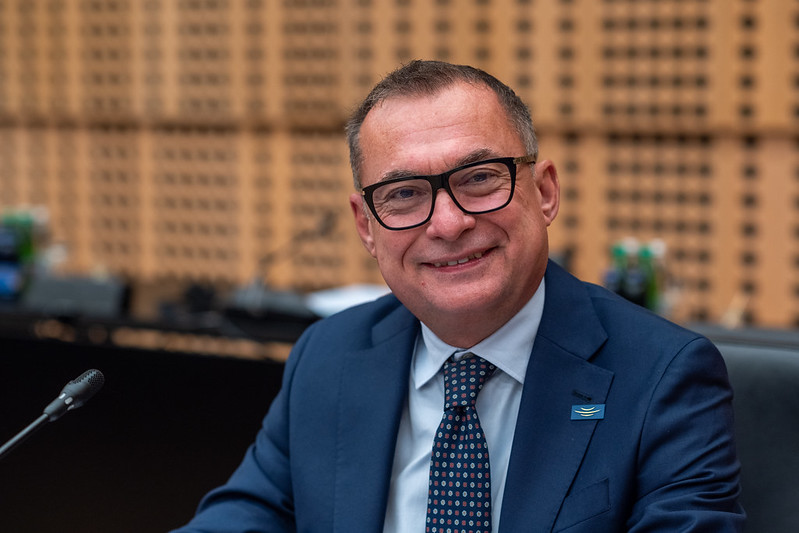ECB’s Nagel: See ‘Grounds for Cautious Optimism as We Look to the Future’
7 July 2025

By David Barwick - TALLINN (Econostream) – European Central Bank Governing Council member Joachim Nagel on Monday said that he saw indications of a German economic recovery ahead and was thus cautiously optimistic.
In a speech at the Estonian central bank, Nagel, who heads the German Bundesbank, noted that although his institution had expected stagnation of the German economy this year, the better-than-expected 1Q performance meant that ‘a slight annual increase’ was possible.
‘Looking ahead, we see promising signs of recovery’, he said, suggesting growth of 0.7% next year and 1.2% the next.
Tariffs and high uncertainty would slash about 0.75 point from German growth, mainly in 2025 and 2026, he said.
‘On the other hand, from 2026 onwards, the growth-dampening effects of tariffs are counterbalanced by positive growth impulses from German fiscal policy’, he said.
Bundesbank experts predicted that the increase in government expenditures would increase German economic growth by 0.75 point by 2027.
‘In our baseline forecast, the two opposing forces in effect broadly cancel each other out’, he confirmed. ‘However, our projections are accompanied by considerable uncertainty. Trade disputes, geopolitical tensions, and specifics of German economic and fiscal policy all present risks.’
One risk was an escalation of trade tensions, which would lead to a loss of output of 1.5 points by 2027, he said.
‘The situation remains fluid, with both escalation and resolution of these tensions being possible at any moment’, he said. ‘Just to mention, in two days, on July 9th, the 90-day pause on US reciprocal tariffs will conclude. We will see what happens.’
Germany was thus up against ‘significant headwinds’ in the short run, even if there were ‘grounds for cautious optimism as we look to the future’, he said.
So as to raise German growth, Nagel called for increasing working hours of part-time workers, facilitating the recognition of foreign academic qualifications, enhancing the incentives to work for those receiving a civic allowance, transforming the energy sector and cutting 'excessive' bureaucratic obstacles confronting entrepreneurs.
At the European level, he urged deeper integration of European financial markets.
‘The European Savings and Investments Union can help mobilise the necessary financing for additional investments, such as, for instance, for the green transition and the enhancement of defence capabilities’, he said.
